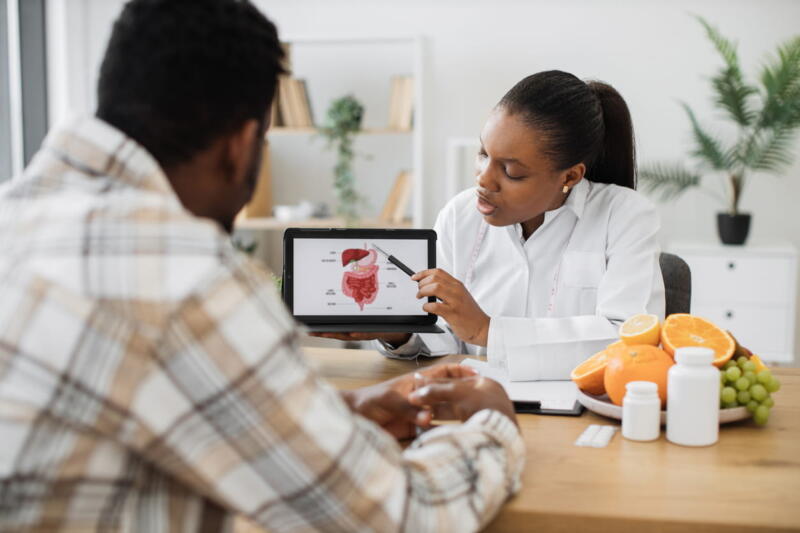
Colorectal cancer is the third most common type of cancer diagnosis and the third most common cause of cancer-related deaths in the U.S. amongst both men and women. The risk of getting colorectal cancer in your lifetime is roughly one in 23 for men and one in 26 for women. Keep reading to learn more about colonoscopies and how they can prevent colorectal cancer.
Have you been worried about your risk of colorectal cancer? Schedule your scan today for ultimate peace of mind.
How Often Should You Get A Colonoscopy?
According to the Centers for Disease Control and Prevention (CDC), it is recommended that everyone get regular colorectal screenings between the ages of 45 and 75. Generally, a colonoscopy is recommended every ten years unless your doctor wants a follow-up sooner.
Regular screenings will vary depending on your individual results and your medical history. After 75, screenings will be individually decided by you and your doctor. Keep in mind that those at high risk for colorectal cancer should consider and discuss screenings earlier than 45 with their doctors.
What Is A Colonoscopy?
According to the CDC, a colonoscopy is a test that involves a doctor using a long flexible tube with a light at the end to get a look at the entirety of the colon from the inside. This test is done to find polyps and/or cancer. A colonoscopy is also performed to remove polyps and smaller types of cancer without more invasive surgery.
What Is A Virtual Colonoscopy?
A virtual colonoscopy is a non-invasive CT scan of your entire colon. This test is recommended every five years unless advised otherwise by your doctor.
Where Can I Get A Virtual Colonoscopy?
Often you would get a virtual colonoscopy by being referred by your doctor to a place with a CT scan that accepts your insurance. However, if you want to get a virtual colonoscopy on your own you can also contact Preventative Diagnostic Center to schedule a virtual colonoscopy.
How Do You Prepare For A Virtual Colonoscopy?
Unfortunately, the preparation for a virtual colonoscopy is the same as it is for a regular colonoscopy. You will have to take a strong laxative the day before the procedure to ensure that the colon is empty and able to be visualized. Your doctor may also prescribe a liquid diet for 1-2 days before the procedure.
How Long Does A Virtual Colonoscopy Take?
A virtual colonoscopy only takes somewhere between ten and fifteen minutes.
What Is Better; A Virtual Colonoscopy Or A Regular Colonoscopy?
The answer to this question will depend on your individual health status and risk factors. It is best to discuss your options with your doctor to find a route that is safest for you. Some things to consider when deciding between a regular colonoscopy or a virtual colonoscopy include:
Virtual colonoscopy pros
- Both procedures pump a small amount of air into the colon via the anus to get a better look at the colon. This risks a rupture, but it’s a small risk thought to be higher with a regular colonoscopy vs. a virtual one.
- Virtual colonoscopies nearly eliminate the risks of bleeding or swelling in the colon which are a small risk with a regular colonoscopy
- Virtual colonoscopies may better visualize the large intestine without risking any damage to it
- Virtual colonoscopies generally don’t require sedation or pain management
Virtual colonoscopy cons
- May miss small polyps
- Polyps cannot be removed during a virtual colonoscopy. This means you may end up needing a regular colonoscopy, anyway, if a polyp removal is necessary.
- There is a small amount of radiation exposure with a virtual colonoscopy
Who Is At A Higher Risk For Colorectal Cancer?
The following factors that are beyond your control and increase your chance of developing colorectal cancer include:
- Having an inflammatory bowel disease like Crohn’s disease or ulcerative colitis
- Having a family history of colorectal cancer and/or colorectal polyps
- Having familial adenomatous polyposis (FAP) syndrome or Lynch syndrome
The following lifestyle factors also increase your risk of colorectal cancer:
- Little to no regular exercise
- A diet with insufficient fruits and vegetables
- A low-fiber, high-fat diet
- A diet high in processed meats
- Being overweight or obese
- Tobacco use
- Alcohol consumption
Cancer Screenings Today For A Healthier Tomorrow
Colorectal cancer screenings are one of the best ways to prevent colorectal cancer as they find and remove the polyps that can turn into cancer before they become cancerous. Colorectal cancer screenings are also the best way to find colorectal cancer while it is still small and treatable. Regular colorectal cancer screenings can literally save your life.
Book your non-invasive scan today
Sources:
Can Colorectal Cancer Be Prevented?. (2020).
Colorectal Cancer Screening Tests. (2023).
Key Statistics for Colorectal Cancer. (2023).
Virtual Colonoscopy. (2023).
What Are the Risk Factors for Colorectal Cancer?. (2023).

